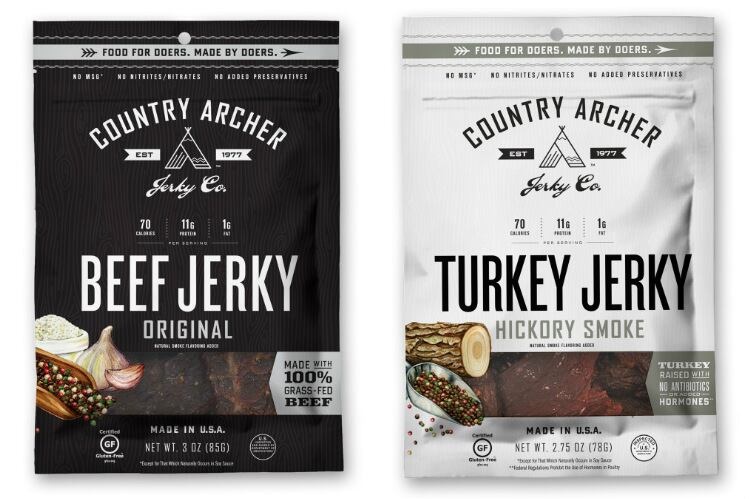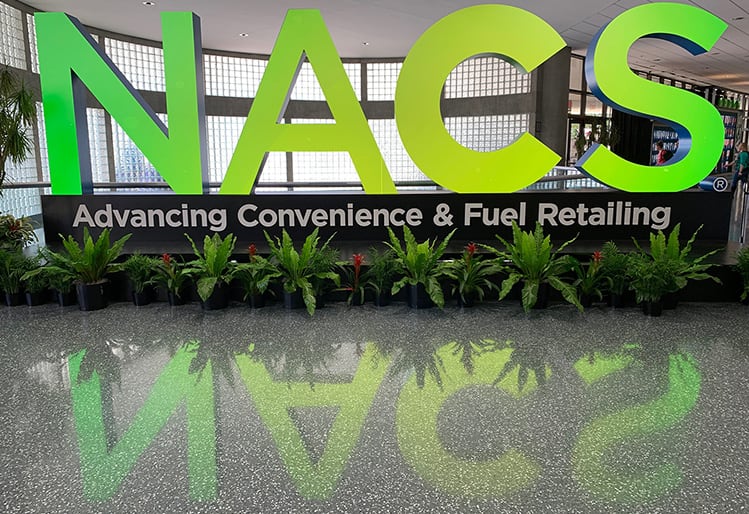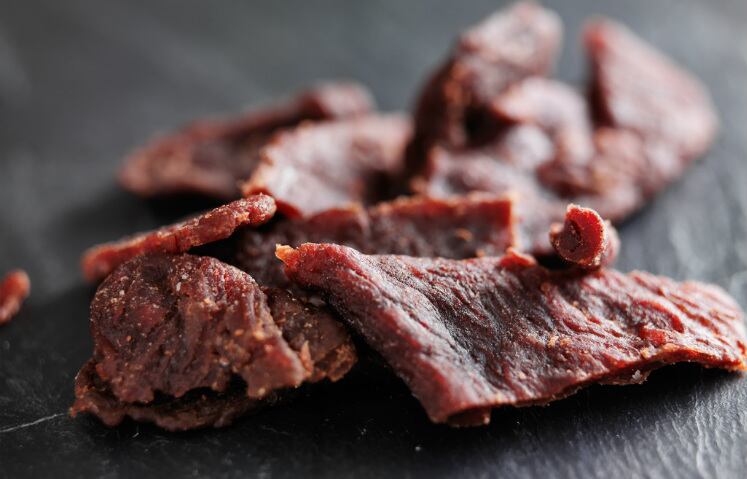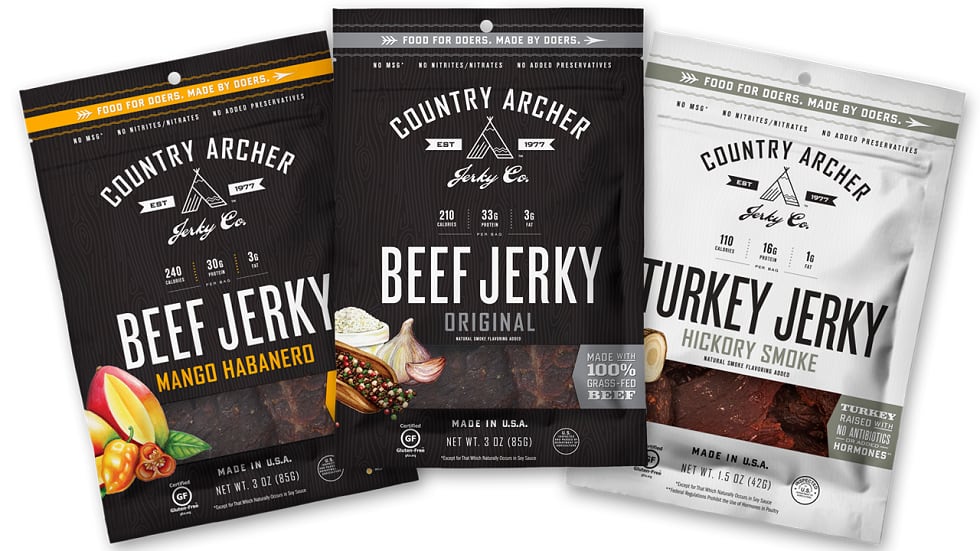“When you look at the back label, there’s nothing to be embarrassed about,” said Jeff Wong, who joined the company in August after leading marketing teams at PepsiCo and Unilever for brands including Naked Juice and KeVita, the probiotic drink.
Wong headed straight to Country Archer’s new marketing office in Los Angeles, “the mecca of flavors and cultures,” he told us at the NACS show held in Atlanta from October 1-4.
Country Archer’s jerky and meat sticks – the latter introduced this summer – have garnered a following in the natural channel where it is the number-one brand, according to SPINS data. The brand “naturally lends itself to that segment,” by only using gras-fed beeef and antibiotic-free pork and turkey.
All of its products are also free from nitrates, MSG, gluten and any added hormones.
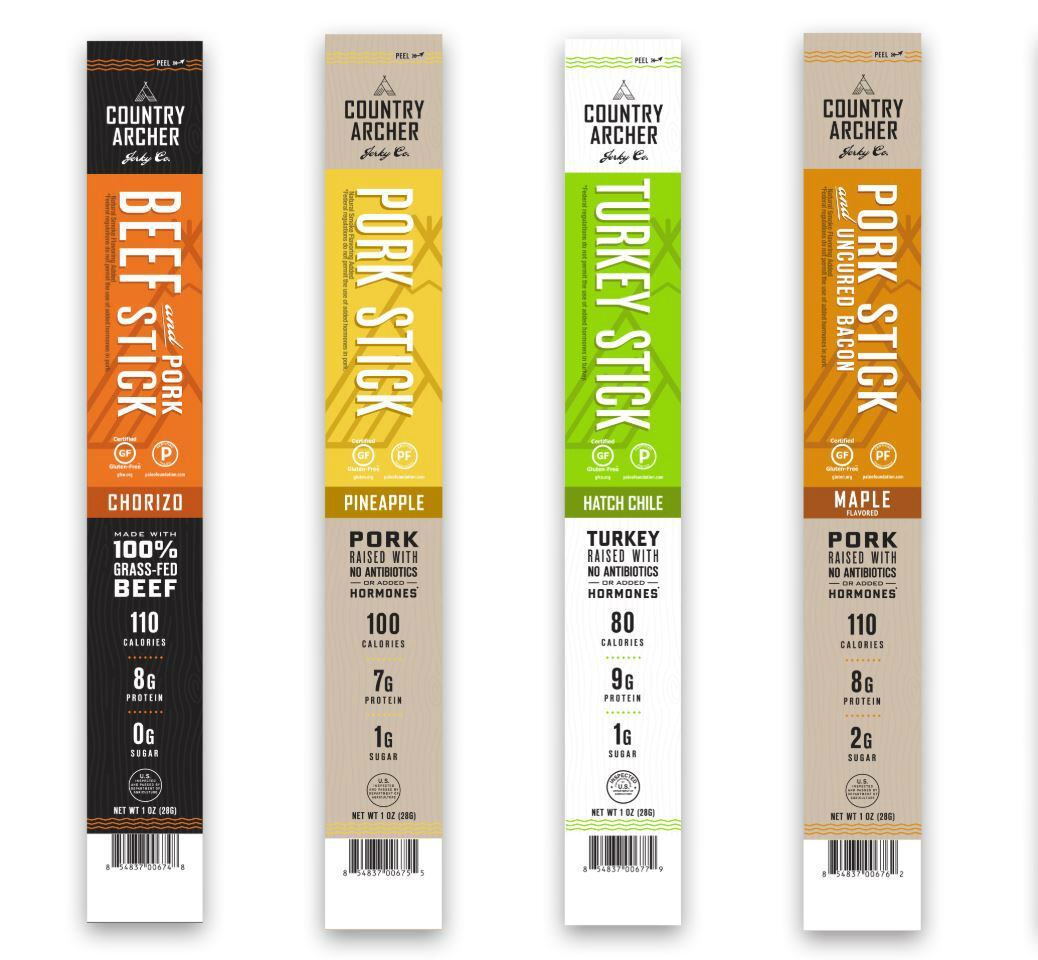
The late founder Celestino ‘Charlie’ Mirarchi started the business in 1977 as a roadside brand, packaged in simple clear bags. Current CEO Eugene Kang discovered it in the 90s, tracked Mirarchi down years later and eventually bought the company outright in 2011.
Country Archer also runs its own production facility in San Bernardino, California, rather than going through a co-packer. Wong sees that strategic choice as somewhat of an anomaly in the premium jerky segment. (In covering many young brands this year, BakeryandSnacks found that many will admit when they use a co-packer but will not divulge further details, sometimes due to contractual obligations.)
Retailers ranging from Walmart, Kroger and Target, to Walgreens and 7-Eleven have latched onto the brand. In the specialty channel, Whole Foods and Sprouts have been essential to sales growth, while having presence in Starbucks' grab-and-go set has broadened appeal to other demographics.
As part of that growth, the brand has focused on flavor experimentation – such as Hatch Green Chile and Sriracha – and new formats. The new individually wrapped sticks likewise reach a different audience, said Wong.
A three-pack runs for $2.99, an 8-pack for $7.99 and a 24-pack for $34.99 at Costco and online.
$10m investment
Monogram Capital Investment has twice invested in Country Archer, including a $10m boost in July 2017.
Founder and partner Jared Stein said at the time that the brand’s “relentless focus on quality as one of the only vertically integrated self-manufacturers in the space has set the brand apart from other meat snack competitors, cementing its position as the brand of choice for retailers and customers alike across channels.”
Monogram has also supported consumer brands like San Francisco-based baker Tartine, fast-casual restaurant chain Dig Inn, ghee maker Fourth & Heart and children’s frozen meal company Kidfresh.
Craft jerky finds a home in convenience
The NACS show this year attracted dozens of companies that had never before thought about the convenience channel. Eschewing it is, perhaps, no longer an option: c-stores comprise more than a third of all brick-and-mortar retailers in the US, according to Nielsen, generating more than $650bn in annual sales.
And in those numbers, foodservice has neared a quarter of total store sales, NACS announced at its state of the industry summit in April. In recent decades, that number has hovered around 15%.
Plus, c-stores offer the speediest of transactions – ever-important as snacking continues to rise along with on-the-go lifestyles: Consumers spend an average of just three to four minutes at a convenience store, including travel from the car into the store and back.
Country Archer attended the NACS show in part because it believes success in this channel is elemental to longterm success.
Wong admitted that, for a sub-category like premium jerky, however, it’s still “early in the life cycle of the convenience channel.”
Especially for millennials, c-stores are “a clear solution for them,” he added. “There is a need for health and wellness in there, in the march toward less processed [foods]. Those consumers are shopping in those stores. Having those better-for-you options is imperative.”
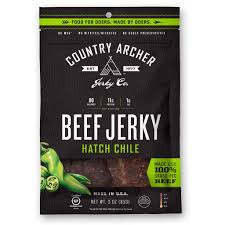
In cementing a foundation in the natural channel, followed by growth in traditional grocery, Country Archer has the data to back up its pitch to c-stores. Now, Wong told us, “it’s an easier story to tell to convenience retailers.”
“When you look at the back label, there’s nothing to be embarrassed about.” – Jeff Wong, VP of marketing at Country Archer
Rising tide lifts all ships
Meat snacks have snagged a noticeable amount of exhibition space at trade shows, whether at the natural-focused Expo West to the candy-oriented Sweets & Snacks, and the NACS show was no exception.
Conagra introduced new Slim Jim products in Atlanta, as well as a new flavor of its own premium jerky brand, Duke’s. Meanwhile, Jack Link’s – the second biggest overall meat snack player after Slim Jim – featured new flavors alongside subsidiary Lorissa’s Kitchen, which debuted a novel jerky-based energy bar at the show.
Other names in premium meat snacks included Oregon’s Tillamook and Werner Gourmet; New Mexico’s Pearson Ranch, which specializes in game meats like elk, boar and buffalo; and Texas’ Stryve Biltong. A Minnesota company called Riff’s Steakhouse even sells ‘Bacon on the Go,’ a kind of jerky made from pork belly.
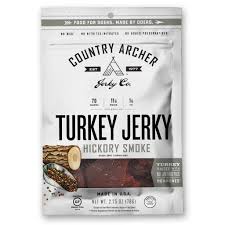
In fact, in 2017 alone, a third of meat snacks blitzed the market on a health platform ‘of some kind,’ according to FONA International.
Wong said Country Archer – one of Inc’s fastest-growing companies in 2018, listed with $21.1m in revenue and nearly 600% growth from 2015-2017 – encourages this attention.
“It’s great to grow the overall category,” he said, adding Country Archer – and many of the aforementioned premium brands – focuses its messaging on transparency, sustainability and high-quality ingredients.
“I think that’s better for the world.”

